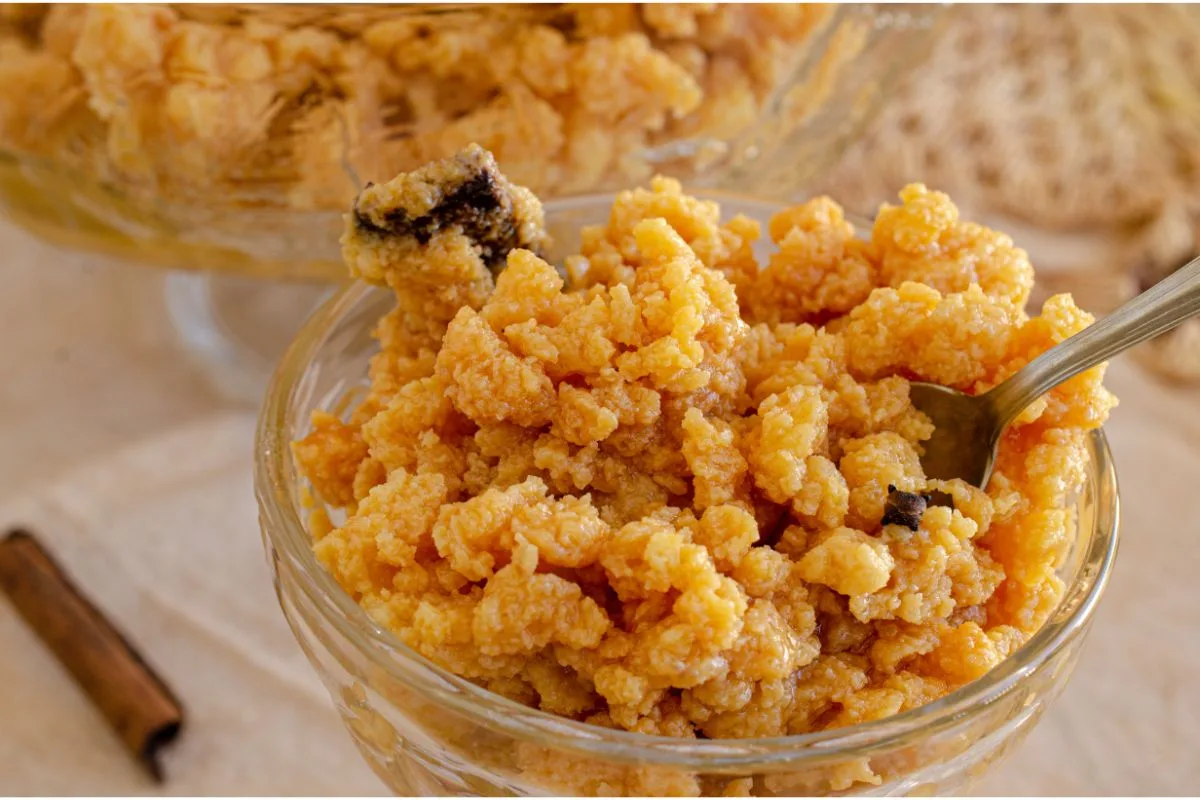Ah, ambrosia…
I ate a lot of that. But it didn’t make me immortal, it made me fat. (I’m joking of course - the dish above is named after the Greek myth OP talks about.)
Serious now: I think that the myth refers to both honey and mead, without making a distinction between both. I’m saying this because:
the myth is considerably old, to the point that it has cognates in Zoroastrianism and Hinduism. It’s tempting to say that it’s an old Indo-European myth, inherited by both sides (Greeks and Indo-Iranians).
the Proto-Indo-European word *médʰu can refer to both honey and mead (note how it’s the ancestor of both English “mead” and Latin “mel” honey). It makes sense if its speakers - i.e. the people who had this myth initially - didn’t bother too much distinguishing both things.
the item in question is sometimes described as food, sometimes as liquid, and it’s rather fragrant.
EDIT: about nectar. Both ἀμβροσῐ́ᾱ→ambrosia and νέκτᾰρ→nectar ultimately mean the same thing: “not dying”, “immortal” (check the links for etymological info). As such I think that both names initially referred to the same thing, and only evolved into two different mythological food items later on.
Not to my knowledge. However, there are plenty references to bees in the whole mythology.
For example, the priestesses of Demeter (Olympian goddess of the soil, crops and food) were typically called μελισσαι melissai “honeybees”; and Persephone (goddess of the spring and underworld; Demeter’s daughter) got quite a few honey-related epithets, such as Μελινδια Melindia and Μελινοια Melinoia (both with μελι meli “honey”).
Ah, ambrosia…

I ate a lot of that. But it didn’t make me immortal, it made me fat. (I’m joking of course - the dish above is named after the Greek myth OP talks about.)
Serious now: I think that the myth refers to both honey and mead, without making a distinction between both. I’m saying this because:
EDIT: about nectar. Both ἀμβροσῐ́ᾱ→ambrosia and νέκτᾰρ→nectar ultimately mean the same thing: “not dying”, “immortal” (check the links for etymological info). As such I think that both names initially referred to the same thing, and only evolved into two different mythological food items later on.
Were there ever Olympian bees in the mythology?
Not to my knowledge. However, there are plenty references to bees in the whole mythology.
For example, the priestesses of Demeter (Olympian goddess of the soil, crops and food) were typically called μελισσαι melissai “honeybees”; and Persephone (goddess of the spring and underworld; Demeter’s daughter) got quite a few honey-related epithets, such as Μελινδια Melindia and Μελινοια Melinoia (both with μελι meli “honey”).
Interesting that melissa and melinda are probably rooted from honey (miel in French haha), maybe Melissandre